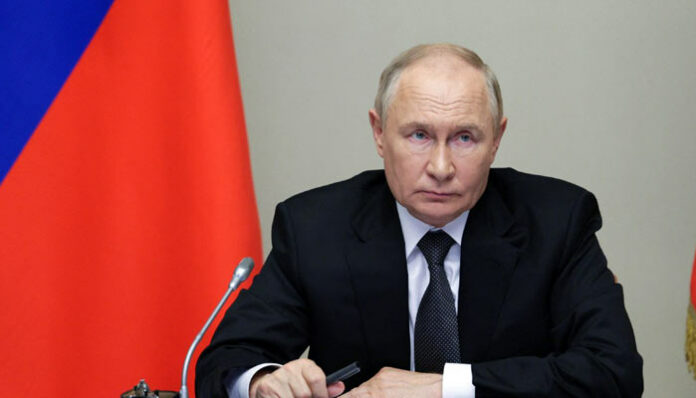Putin shared that the goal of the meeting shouldn’t just be to pause the fighting for a little while. He said it’s important to work toward a peace that’s strong and lasting, not something fragile or forced. To him, real peace can only happen if both countries are ready to listen, understand each other’s side, and solve the deeper issues that started this war. If they come together with open hearts and patience, he believes they can find a way forward through peace talks.
In the middle of all this, the world is reminded of the Cuban Missile Crisis of 1962, a moment in history when the world was also on the brink of something far more dangerous. Just as that crisis shaped the global stage, the current conflict is having a similar, lasting impact on the lives of countless people.
Putin made it clear that the goal is to build long-term, stable peace. This peace should help restore a sense of normalcy for everyone affected. The aim is to create conditions where both sides feel safe and secure—not just for a moment, but for the future. This presents a chance to finally address the issues that have divided nations and people for so long. Peace talks may be the only path forward.
Putin Invites Ukraine to Talk Peace Freely, as the World Hopes for Calm
In the early hours of Sunday, Putin addressed the nation from the Kremlin. He offered Ukraine the chance to begin peace talks with no conditions. His message was straightforward. He called for an open conversation, free from the usual restrictions or demands that often block solutions. He emphasized that peace can only happen when both sides are willing to listen and approach each other without barriers.
Alongside Trump, European leaders have also repeatedly warned about the dangers of continuing the conflict, urging Russia to seek a peaceful solution. Their concerns, grounded in the hope of avoiding further escalation and suffering, have echoed across the global stage. Yet, despite these warnings, Putin’s response has been to offer few, if any, meaningful changes or steps toward ending the war through peace talks.
Many Leaders Want the War to End, But Peace Still Feels Far Away
European leaders, along with Trump, have repeatedly raised concerns about the dangers of letting the war continue. They have called on Russia to pursue a peaceful resolution to avoid further harm and escalation. These pleas have been heard globally, driven by a shared hope to stop the conflict from spreading. However, despite these repeated calls, Putin has shown little willingness to make any significant moves toward ending the war or changing his approach.
Putin hopes these peace talks can be the first step toward a ceasefire. It’s not just about stopping the fighting for a little while, but about making room for real, lasting peace. a chance to fix the damage caused by the war. For this to happen, both sides will need to be willing to listen, make compromises, and focus on a peaceful future, rather than holding onto the violence that has torn them apart.
The statement reveals a deeper concern, showing that while peace is being offered, achieving it is made difficult by political struggles. Putin seems to hope that the leaders will shift their focus to what truly matters: the future of their people and the possibility of peace, instead of letting personal or political ambitions get in the way.
At the heart of this pause is a desire for careful judgment. Ukraine’s leaders are considering how the offer could affect not just the war’s outcome, but the future of their country. The time they take now might be key. It could ensure that any response leads to meaningful change, especially if it opens the door to peace talks.
For many, the repeated attempts to offer ceasefires, only to see them broken, makes the conflict even more painful and discouraging. It highlights how difficult it is to achieve peace, especially when the scars of war are so deep. However, despite these obstacles, Putin’s remarks show that Russia still believes there is a chance for progress, even if it seems like a distant goal.
A Temporary Halt in Fighting and the Challenge of Earning Trust Again
Putin explained that during the ceasefire in May, Ukraine launched a significant attack on Russia. They used 524 aerial drones, 45 sea drones, and several missiles from the West. This sudden escalation, despite the agreed-upon pause, raised serious questions about the chances for peace. For many, it serves as a painful reminder. Even when a break in fighting is expected, peace can still be shattered if one side escalates tensions instead of seeking calm.
On Saturday, Ukraine, supported by several major European countries, made a strong appeal to Putin. They urged him to agree to a 30-day ceasefire without conditions. Ukraine and its allies view the ceasefire as more than just a temporary pause. They see it as a vital step toward building lasting peace. Their hope is to end the long-running violence and the pain that has affected countless lives in the region.
He rejected the pressure, emphasizing that no country should face threats to force its decisions. By arguing that this approach only deepens the divide, he highlighted the difficulty of achieving productive peace talks. Furthermore, he reminded everyone that respecting each side’s right to make its own choices is essential for paving the way for real progress during conflicts.

